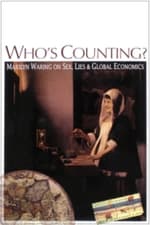Προσωπικές πληροφορίες
Γνωστός/η για Ηθοποιία
Γνωστοί συντελεστές 12
Φύλο Άνδρας
Ημερομηνία γέννησης 15 Οκτώβριος 1908
Ημερομηνία θανάτου 29 Απρίλιος 2006 (97 ετών)
Τόπος γέννησης Iona Station, Ontario, Canada
Γνωστός/ή και ως
- Mark Epernay
- J.K. Galbraith
- Professor J.K. Galbraith
- Ken Galbraith
Σκορ Περιεχομένου
100
Ναι! Φαίνεται μια χαρά!
Συνδεθείτε για να αναφέρετε κάποιο πρόβλημα
Βιογραφία
John Kenneth Galbraith OC (October 15, 1908 – April 29, 2006), also known as Ken Galbraith, was a Canadian American economist, diplomat, public official, and intellectual. His books on economic topics were bestsellers from the 1950s through the 2000s. As an economist, he leaned toward post-Keynesian economics from an institutionalist perspective.
Galbraith was a long-time Harvard faculty member and stayed with Harvard University for half a century as a professor of economics. He was a prolific author and wrote four dozen books, including several novels, and published more than a thousand articles and essays on various subjects. Among his works was a trilogy on economics, American Capitalism (1952), The Affluent Society (1958), and The New Industrial State (1967). Some of his work has been criticized by economists Milton Friedman, Paul Krugman, Robert Solow, and Thomas Sowell.
Galbraith was active in Democratic Party politics, serving in the administrations of Franklin D. Roosevelt, Harry S. Truman, John F. Kennedy, and Lyndon B. Johnson. He served as United States Ambassador to India under the Kennedy administration. His political activism, literary output and outspokenness brought him wide fame during his lifetime. Galbraith was one of the few to receive both the World War II Medal of Freedom (1946) and the Presidential Medal of Freedom (2000) for his public service and contributions to science.
Galbraith was born on October 15, 1908, to Canadians of Scottish descent, Sarah Catherine (Kendall) and Archibald "Archie" Galbraith, in Iona Station, Ontario, Canada, and was raised in Dunwich Township, Ontario. He had three siblings: Alice, Catherine, and Archibald William (Bill). By the time he was a teenager, he had adopted the name Ken, and later disliked being called John. Galbraith grew to be a very tall man, attaining a height of 6 feet 9 inches (206 cm).
His father was a farmer, school teacher, head of a cooperative insurance company, and local official of the Liberal Party. His mother, a homemaker and a community activist, died when he was fourteen years old. The family farm was located on Thomson Line. Both of his parents were supporters of the United Farmers of Ontario in the 1920s.
His early years were spent at a one-room school which is still standing, on 9468 Willey Road, in Iona Station. Later, he went to Dutton High School and St. Thomas High School. In 1931, Galbraith graduated with a Bachelor of Science in Agriculture from the Ontario Agricultural College, which was then an associate agricultural college of the University of Toronto. He majored in animal husbandry. He was awarded a Giannini Scholarship in Agricultural Economics (receiving $60 per month) that allowed him to travel to Berkeley, California, where he received masters and Doctor of Philosophy degrees in agricultural economics from the University of California, Berkeley. Galbraith was taught economics by Professor George Martin Peterson, and together they wrote an economics paper titled "The Concept of Marginal Land" in 1932 that was published in the American Journal of Agricultural Economics. ...
Source: Article "John Kenneth Galbraith" from Wikipedia in English, licensed under CC-BY-SA 3.0.
John Kenneth Galbraith OC (October 15, 1908 – April 29, 2006), also known as Ken Galbraith, was a Canadian American economist, diplomat, public official, and intellectual. His books on economic topics were bestsellers from the 1950s through the 2000s. As an economist, he leaned toward post-Keynesian economics from an institutionalist perspective.
Galbraith was a long-time Harvard faculty member and stayed with Harvard University for half a century as a professor of economics. He was a prolific author and wrote four dozen books, including several novels, and published more than a thousand articles and essays on various subjects. Among his works was a trilogy on economics, American Capitalism (1952), The Affluent Society (1958), and The New Industrial State (1967). Some of his work has been criticized by economists Milton Friedman, Paul Krugman, Robert Solow, and Thomas Sowell.
Galbraith was active in Democratic Party politics, serving in the administrations of Franklin D. Roosevelt, Harry S. Truman, John F. Kennedy, and Lyndon B. Johnson. He served as United States Ambassador to India under the Kennedy administration. His political activism, literary output and outspokenness brought him wide fame during his lifetime. Galbraith was one of the few to receive both the World War II Medal of Freedom (1946) and the Presidential Medal of Freedom (2000) for his public service and contributions to science.
Galbraith was born on October 15, 1908, to Canadians of Scottish descent, Sarah Catherine (Kendall) and Archibald "Archie" Galbraith, in Iona Station, Ontario, Canada, and was raised in Dunwich Township, Ontario. He had three siblings: Alice, Catherine, and Archibald William (Bill). By the time he was a teenager, he had adopted the name Ken, and later disliked being called John. Galbraith grew to be a very tall man, attaining a height of 6 feet 9 inches (206 cm).
His father was a farmer, school teacher, head of a cooperative insurance company, and local official of the Liberal Party. His mother, a homemaker and a community activist, died when he was fourteen years old. The family farm was located on Thomson Line. Both of his parents were supporters of the United Farmers of Ontario in the 1920s.
His early years were spent at a one-room school which is still standing, on 9468 Willey Road, in Iona Station. Later, he went to Dutton High School and St. Thomas High School. In 1931, Galbraith graduated with a Bachelor of Science in Agriculture from the Ontario Agricultural College, which was then an associate agricultural college of the University of Toronto. He majored in animal husbandry. He was awarded a Giannini Scholarship in Agricultural Economics (receiving $60 per month) that allowed him to travel to Berkeley, California, where he received masters and Doctor of Philosophy degrees in agricultural economics from the University of California, Berkeley. Galbraith was taught economics by Professor George Martin Peterson, and together they wrote an economics paper titled "The Concept of Marginal Land" in 1932 that was published in the American Journal of Agricultural Economics. ...
Source: Article "John Kenneth Galbraith" from Wikipedia in English, licensed under CC-BY-SA 3.0.
Ηθοποιία
|
|||
|
|||
|
|||
|
|||
|
|||
|
|||
|
|||
|
|||
|
|||
|
|||
|
Σενάριο
|






